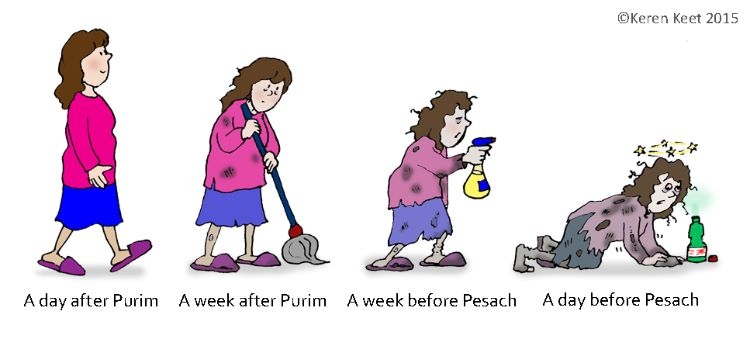First, a poignant message from Marc Gellman that I suspect many of us can relate to.
Grieving isn’t all that bad:
04/25/2024
A Shabbat moment to think about other things:
GRIEVING ISN’T ALL THAT BAD . . .
. . . and some of us know of the “DER TSAR” (grief) that doesn’t go away. The grief we can’t get used to. The grief we feel shivering through our body and have grown to accept.
It is grief we felt earlier this week as we looked around our Seder table and was reminded of those gone. I can’t imagine anyone being more in love with their wife than I was. But maybe it’s not the measure of love that controls how resilient we can be to go forward with our life with grief.
I’ve thought that grieving sucks. But it does bring back to mind the beautiful moments we see through Shiva Eyes, in moments that we treasure. And sometimes, I wonder that maybe, just maybe . . . grieving isn’t all that bad.
A THOUGHT FOR TODAY and. . . . Shabbat Shalom!
Learn more about the author at: marcgellman.con

Tonight, after the first two nights of Pesach (Passover), I still feel the emptiness, the absence of my father, May He Rest in Peace, at the Seder, the ceremonial meal and telling of the story of exodus from Egypt and redemption from slavery. And I agree with Marc: reliving and treasuring those beautiful moments when my father handed to everyone a slice of hardbolied egg on a piece of Matzah with a wish “Darleibn ibar a yuhr” (let’s live to the next year) transforms the loss into a precious feeling of cherished memories.
My father had a major sweet tooth. One of his special Passover treats, discovered in the US, was a choice of coconut macaroons of different flavors – preferably chocolate. We had not heard of them in the old country, and the discovery was delightful because switching the kitchen to Pesach mode means making sure that it contains no Chometz (leaven), no utensils that have been used with leaven, and no surfaces that have been touched by leaven during the year. Lest you think, Beautiful People, that we throw away those utensils and surfaces, you may rest easy. This is not the case. Utensils are put away, to be replaced by others of the kind, used only on Pesach, and surfaces are covered.

We start this insane cleaning process (not only the kitchen, but the entire house should be completely clean of even a tiny cookie crumb your child dropped between cushions on the couch) immediately after Purim, and this is what we usually look like the day before Passover. Then we take a deep breath, go make ourselves pretty, dress in our finest, and fulfill the commandment to rejoice.
“How is this night different from all other nights?” – sing the Maccabeats. This song is a part of the Seder, usually performed by the children. With it starts the story of the exodus. How is Passover food different from the food during the year? It contains no leaven and no products that have the potential to get leavened during preparation, such as wheat, spelt, or oat flour, which makes macaroons the ideal Pesach sweets. However, contrary to the ancient traditional foods, they did not join the Pesach menus until the French revolution. Even though they were known in France since the eighth century, when the Benedictine nuns made them using almonds or any other nuts they had on hand, Jews were not aware of them. Jewish history in France has been so wrought with intermittent expulsions and welcomes, restrictions and permissions, that French cookies were, probably, the last on their minds. Until, in 1789, two Benedictine nuns, Sister Marguerite and Sister Marie-Elisabeth, came to Nancy, home of the thriving Jewish community, seeking asylum during the French Revolution. The two women paid for their housing by baking and selling macaroons, and thus became known as the “Macaroon Sisters” (Hochman, 2008). Jews quickly got the idea and adopted macaroons because it has no flour or leavening and thus can be eaten during the eight-day observation of Pesach (ibid.).
And so I happily mixed unsweetened coconut shreds with coconut flour, brown sugar, vanilla extract, and unsweetened dark cocoa powder. I tasted it for sweetness and pronounced, “This is good.” I whipped two egg whites to stiff peaks (dear vegan and vegetarian friends, we don’t use beans on Passover, so aquafaba is out of the question). It took me a few minutes to marry the dry ingredients with the whipped egg whites and to get the baking sheet misted with oil and ready. Then I used an ice-cream scoop to drop them on the baking sheet and popped them in the oven. Only 20 minutes, and my father would’ve been so pleased!
INGREDIENTS
INGREDIENTS
- 11/3 cups unsweetened shredded coconut
- 2/3 cup brown sugar
- 2 tablespoons coconut flour
- 1 tablespoon unsweetened cocoa powder
- Pinch of salt
- 2 large egg whites, room temperature
- 1/2 teaspoon vanilla extract
PROCEDURE
- Preheat oven to 325 F. Mist baking sheet with oil.
- Whip egg whites with salt until peaked.
- Combine dry ingredients. Add whipped egg whites and vanilla, mix gently, but thoroughly.
- Drop by rounded teaspoonfuls onto baking sheet. Bake for 18-20 minutes or until golden brown. Cool on wire rack.
חג פסח שמח!

Yummy!! ❤
מועדים לשמחה!
LikeLike
I would rather remember and sometimes grieve than totally forget.
Hats off to the Maccabeats, they have a fabulous and unique style.
I’ve never made macaroons, I’ll have to try, maybe for Mother’s Day as a special treat.
I pray you and your family are having a blessed and beautiful Pesach and as always, I am praying for the peace of Jerusalem.
LikeLike
Thank you so much for your lovely comment and kind wishes, dear Mimi, and thatn you for your prayers and your support.
LikeLike